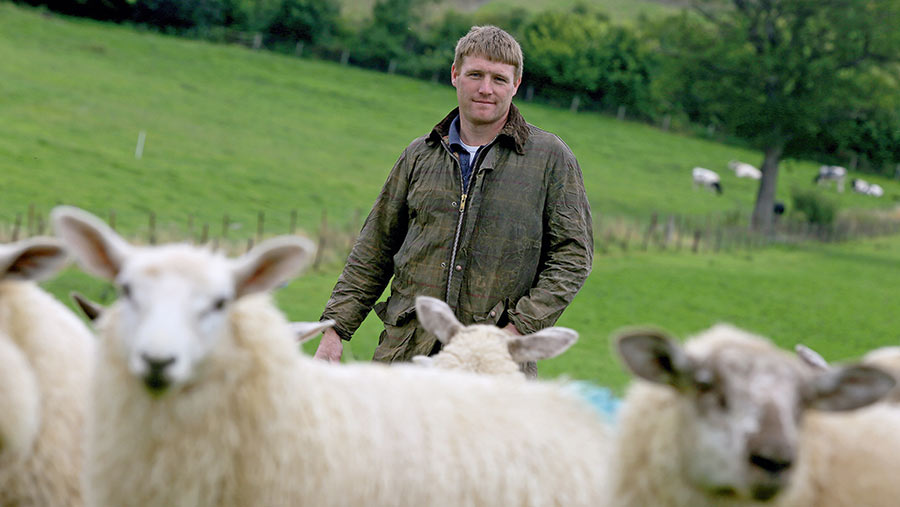Farmer Focus: Not feeling optimistic post-Brexit
 © Richard Stanton
© Richard Stanton We have been enjoying some sunshine over the past week, and friends and neighbours have been working all hours to get their harvest in.
We enjoyed a couple of days at the Royal Welsh Show – a great family day out, regardless of whether you are from an agricultural background or not.
Our boys were in their element, trawling up and down the machinery aisles, and as always we returned home loaded down with leaflets – and with dreams of new equipment and time-saving gadgets.
The hot topic of discussion at the show was Brexit and the long-term effects.
From speaking to people on a few trade stands, it seems the overall feeling is not very optimistic.
See also: Read more from the Livestock Farmer Focus writers
Some imported goods have already seen an increase in cost, as a result of the devaluation of sterling.
However, this has helped the price of lambs, which are currently selling well.
When times are tough, farmers will tighten their purse strings and this will inevitably affect the wider rural community.
See also: Let’s hope Brexit farm promises are kept
FUW recently held an event at a fellow member’s farm, looking at how many businesses and services agriculture supports locally. It was very surprising.
So when our industry struggles, we may also see the others take a hit.
We have had our latest TB test after being shut down with TB in April.
We have had another reactor, a cow that was an inconclusive last time, and two new inconclusives.
On top of the TB, we have had two cows test positive for Johne’s disease. They will now also be culled. All this at a time when we are short of cows.
See also: Wales has done nothing to solve TB problem
At the beginning of July, I was invited to meet Joe Farron, the new chief executive of the British Wool Marketing Board at a local pub.
The low price we get for wool is always a talking point, along with comments questioning what the wool board actually does.
Joe was very approachable and didn’t come to lecture us about keeping fleeces clean and how to wrap them properly, but to get feedback and listen to producers’ comments.
He had been on the lorries collecting wool and handling it back at the depot, getting his hands dirty to fully understand the workings of the industry.
I learnt about the work the board does on our behalf, marketing and promoting the wool. I came away feeling that a strong wool board is very much in our interest and that third-party buyers would, in the long-term, be detrimental to the wool price.
Mark and Helen Williams run 1,000 ewes and 40 suckler cows across 283ha of part-owned and rented land.
